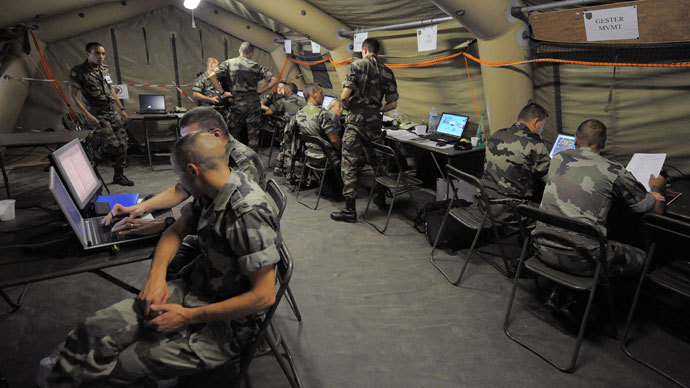NATO launches ‘largest ever’ cyber-security exercises

NATO has kicked off Cyber Coalition 2013, the largest ever exercise of its kind intended to thwart massive, simultaneous attacks on member states and their allies.
The three-day exercise, based at the 27 member alliance's cyber
defense center in Estonia, will include participants from over
30 European states. Some 400 IT, government and legal experts
from across the alliance will take part in the operation.
“With around 100 participants in Tartu [Estonia] and over 300
in national capitals from 32 nations, Cyber Coalition 2013 is the
largest exercise of its kind in terms of participating
countries,” NATO said in a statement.
The exercises are intended to check NATO and its partners’
“technical and operational responsibilities” and review
how efficiently participants coordinate their efforts.
The alliance noted that as a host nation, Estonia will provide
“exercise infrastructure, training facilities and logistics
support.”
"Cyber-attacks are a daily reality and they are growing in sophistication and complexity. NATO has to keep pace with this evolving threat and Cyber Coalition 2013 will allow us to fully test our systems and procedures to effectively defend our networks - today and in the future," Jamie Shea, Deputy Assistant Secretary General for Emerging Security Challenges at NATO Headquarters, said in a statement. "NATO has to keep pace with this evolving threat."

NATO has yet to decide if a cyber-attack against one alliance
member would entail a collective response as outlined under
Article 5 of the Washington Treaty. Currently, cyber security is
treated as a national responsibility despite the
interconnectedness of member state networks.
Estonia has hosted the NATO Cooperative Cyber Defence Centre of
Excellence since October 2008, following a series of
cyber-attacks against the country in April of the previous year.
The 2007 attacks saw the websites of the Estonian parliament,
banks, ministries, newspapers and broadcasters hit with an
unprecedented wave of DDoS (denial-of-service) attacks.
The incident pushed NATO and governments worldwide to reevaluate
the importance of network security in modern warfare.
Roland Murof, a military spokesman for the Estonian Defense
Forces, said that the games’ scenario includes “simulated
multiple, simultaneous attempts to infiltrate information
networks with different cyber warfare techniques, including
botnets and malware-infected websites.” As the exercise
scenario is fictitious, “the attackers are fake organizations
supported by fictitious nations and have no link to the real
world,” he said, as cited by theregister.co.uk.














